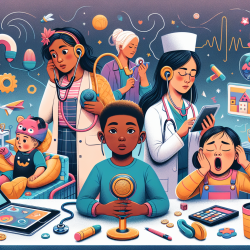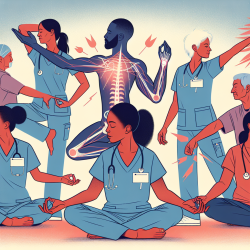Introduction
In the realm of mental health care, especially for trauma patients, timely and effective screening is crucial. The recent pilot study on tech-based mental health screening platforms, such as Blueprint, offers valuable insights for practitioners aiming to improve their skills and patient outcomes. This blog will delve into the findings of the study, highlighting the potential of tech-based solutions to enhance mental health screening and intervention.
Understanding the Study
The study assessed the usability and acceptability of Blueprint, a tech-based mental health screening platform, among trauma patients. Participants completed the PTSD Checklist-5 and Patient Health Questionnaire-9 using Blueprint. The platform received an impressive System Usability Scale (SUS) score of 93.25/100, indicating excellent usability. Participants appreciated the convenience, personalization, and trauma-informed care offered by tech-based screening.
Key Findings
- Usability and Acceptability: Participants found Blueprint easy to use, with 90% rating it as 'very easy' to access. The average SUS score of 93.25/100 reflects high user satisfaction.
- Benefits of Tech-Based Screening: Participants valued the convenience and personalization of tech-based screening. They appreciated the ability to engage in routine monitoring of PTSD and depressive symptoms.
- Preference for In-Person Services: While tech-based solutions were well-received, participants preferred using them to facilitate access to in-person mental health services.
Implications for Practitioners
For practitioners, the study underscores the potential of tech-based platforms to enhance mental health screening and intervention. Here are some ways practitioners can leverage these findings:
- Integrate Tech-Based Solutions: Incorporate platforms like Blueprint into your practice to streamline screening processes and enhance patient engagement.
- Facilitate Access to Services: Use tech-based tools to bridge the gap between patients and in-person mental health services, ensuring timely interventions.
- Personalize Care: Utilize data from tech-based screenings to tailor interventions and provide personalized care plans for patients.
Encouraging Further Research
While the pilot study offers promising results, further research is essential to explore the long-term impact of tech-based screening on mental health outcomes. Practitioners are encouraged to participate in or conduct studies that assess the effectiveness of tech-based interventions in diverse settings.
Conclusion
Tech-based mental health screening platforms like Blueprint present an opportunity to enhance the quality and accessibility of mental health care for trauma patients. By integrating these tools into practice, practitioners can improve screening processes, facilitate timely interventions, and ultimately create better outcomes for their patients.
To read the original research paper, please follow this link: Perceptions of tech-based mental health screening.










